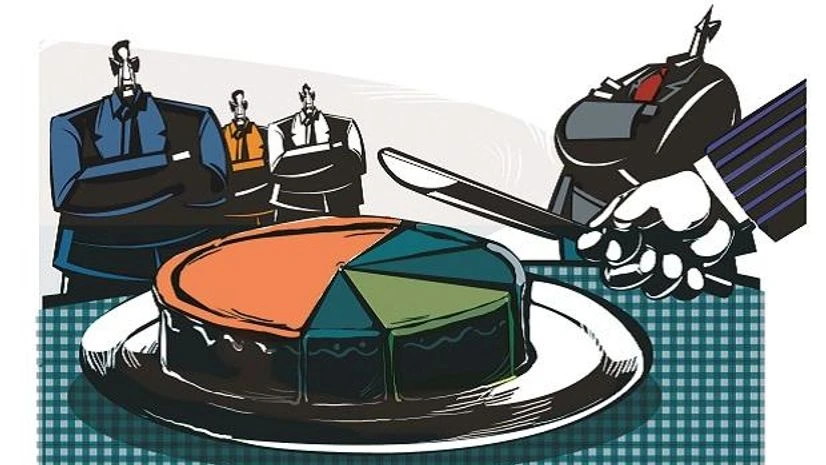Trinamool Congress Tuesday lashed out at the newly unveiled National Monetisation Pipeline calling it a "dangerous bid" by the "bankrupt" Narendra Modi government to raise money by gradually handing over sectors like rail, road, airport, mining to the corporates.
TMC deputy leader in Rajya Sabha, Sukhendu Sekhar Roy told a press meet here that the National Monetisation Pipeline is an "unprecedented anti-people move" which did not figure in the BJP election manifesto for the 2019 Lok Sabha polls.
There had neither been any discussion in the Parliament about the move, Roy, who is also TMC chief whip in Rajya Sabha, said.
Union Finance Minister Nirmala Sitharaman had unveiled a four-year NMP worth Rs 6 lakh crore on Monday.
"The NMP is a dangerous bid by the bankrupt Modi government ... National highways measuring 26,700 km will be privatised, along with 400 rail stations, 150 trains. a staggering 42,300 km transmission line, 8000 km-long GAIL pipeline, 4000 km-long oil pipeline, BSNL and MTNL towers are going to be handed over to corporates for 25-30 year lease which will be extended afterwards," Roy said quoting from some documents.
Also Read
Referring to the provision in the NMP for extension of the lease, he said "The Modi government will be there till 2024. How can it decide what wil be done after the next Lok Sabha elections?"
The lease will become a perpetual lease, he claimed and added that a total 160 coal mining projects, 21 airports and 31 ports will be handed over to private companies in a similar manner, Roy said.
Expressing outrage that such a central policy had been announced on the 75th year of Independence and terming it an "unprecedented anti-people move", he said the Modi government has earned the moniker of "government of corporates, for the corporates and by the corporates."
Describing the situation as an "economic disaster", the TMC MP said "While the Modi government is selling off everything to raise money to meet the Centre's financial bankruptcy, there is no explanation why the central vista project is being commissioned at a cost of Rs 20,000 crore and Rs 190 crore is being spent to build new house for the vice-president".
To a question, Roy said TMC will chalk out a future course of action against the NMP in consultation with other opposition parties and after holding parleys within Trinamool Congress.
He alleged that the financial bankruptcy of the Centre was triggered by the demonetisation in 2016 against which TMC supremo Mamata Banerjee had launched strong protest.
He apprehended this would make employees in both organised and unorganised sectors vulnerable to retrenchment by new corporate owners.
On Monday Sitharaman had unveiled the National Monetisation Policy that talked about unlocking value of Centre's brownfield projects by involving private companies across infrastructure sectors - from passenger trains and railway stations to airports, roads and stadiums.
As many as 25 AAI airports, including those at Chennai, Bhopal, Varanasi and Vadodara, as well as 40 railway stations, 15 railway stadiums and an unidentified number of railway colonies have been identified for getting private investments.
Stating that there will be no transfer of ownership or land, she had said "The NMP talks about brownfield infra assets where investments have already been made, where there is a completed asset which is either languishing or which is remaining not fully monetised or which is remaining underutilised."
TMC had on Monday claimed that the NMP is an example of government getting privatised by crony capitalists and demanded the immediate rollback of the "anti-people decision".
Roy had said that never before in the history of independent India, a union government has "so helplessly surrendered to the corporate".
"This BJP government is run by the corporate, of the corporate and for the corporate. This government has been completely privatised by crony capitalists ... Under the garb of National Monetisation Pipeline (NMP), it is actually a privatisation programme," he had said.
(Only the headline and picture of this report may have been reworked by the Business Standard staff; the rest of the content is auto-generated from a syndicated feed.)

)
